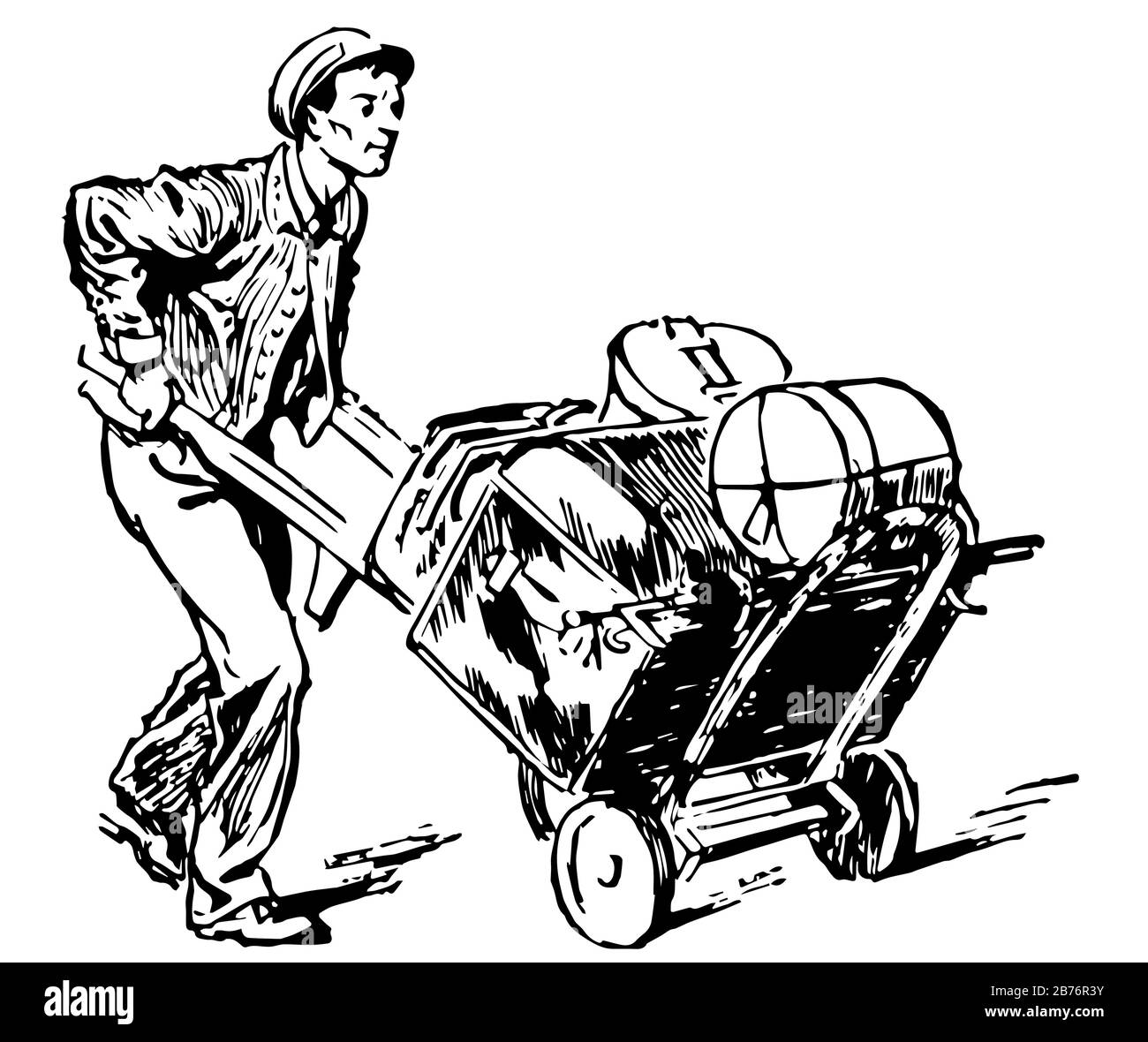Historical Context of the Term “Porter”

The term “porter” has a rich and multifaceted history, evolving from its humble origins to encompass a wide range of roles and responsibilities across different societies and industries. Understanding the historical context of the word “porter” sheds light on the significant contributions made by individuals who have traditionally held this position, highlighting their crucial role in facilitating trade, transportation, and social interaction throughout history.
Origins and Evolution of the Term “Porter
The word “porter” is derived from the Middle English word “portour,” which itself originated from the Old French word “portour,” meaning “carrier” or “bearer.” The term’s earliest recorded use dates back to the 14th century, when it referred to individuals responsible for carrying goods and luggage for travelers and merchants. Over time, the meaning of “porter” broadened to encompass various roles associated with carrying, transporting, and assisting individuals in different settings, such as inns, hotels, and businesses.
Historical Roles and Responsibilities of Porters, Porter meaning
Porters in Inns and Hotels
In the past, porters played a vital role in inns and hotels, serving as the first point of contact for guests. Their responsibilities included greeting travelers, assisting with luggage, providing information about the inn or hotel, and attending to guests’ needs. Porters were often seen as trusted individuals, responsible for ensuring the safety and comfort of guests.
Porters in Businesses and Industries
Porters also held important positions in various businesses and industries. In factories, they were responsible for moving materials and products around the facility, often using handcarts or other manual equipment. In warehouses, porters loaded and unloaded goods, ensuring efficient handling and storage. Their physical strength and endurance were essential for these physically demanding tasks.
Porters in Transportation
Porters played a crucial role in transportation, particularly in pre-industrial societies. They were responsible for carrying goods and luggage on foot, by animal, or by boat. Their services were essential for transporting goods between cities, villages, and ports, contributing to the flow of commerce and trade. Porters were also responsible for assisting travelers with their luggage, providing a vital service in the absence of modern transportation systems.
Comparison of Past and Present Porter Duties
While the term “porter” continues to be used today, the roles and responsibilities of modern porters differ significantly from their historical counterparts. In modern society, porters are often employed in hotels, airports, and other service-oriented industries, where they are responsible for tasks such as assisting guests with luggage, providing information and directions, and maintaining the cleanliness and order of public areas.
- Historical Porters: Often relied on physical strength and endurance for manual labor, such as carrying heavy loads, moving materials, and loading and unloading goods. Their roles were essential for facilitating trade and transportation in pre-industrial societies.
- Modern Porters: While still involved in physical tasks, such as carrying luggage and maintaining cleanliness, modern porters are more likely to have specialized training and skills in customer service, communication, and problem-solving. They often use technology, such as mobile devices and communication systems, to enhance their efficiency and communication with guests.
Examples of Historical Figures and Events
The “Porter’s Lodge” at Oxford University
The term “porter” has a long-standing association with educational institutions. The “Porter’s Lodge” at Oxford University, for example, has been a prominent feature of the institution since the 14th century. The porter was responsible for overseeing the gates, controlling access to the university grounds, and providing security for students and faculty. This historical example highlights the significant role porters played in maintaining order and safety within educational institutions.
The “Porters” of the British Army
In the British Army, porters were historically responsible for carrying supplies and equipment for soldiers on the battlefield. Their resilience and dedication were crucial for supporting military operations. The “Porter’s Company” of the British Army played a vital role in supplying troops during World War I, carrying heavy loads over difficult terrain. This example demonstrates the crucial role porters played in military logistics and support.
Modern Interpretations of “Porter”: Porter Meaning

While the traditional image of a porter as a baggage handler or a doorman persists, the term “porter” has evolved to encompass a broader range of roles and responsibilities in modern society. This evolution reflects the changing needs of various industries and the increasing demand for skilled professionals who can perform a variety of tasks related to logistics, service, and support.
The Role of Porters in Various Industries
The term “porter” finds application in various industries, each with its unique set of requirements and expectations.
Hospitality
In the hospitality industry, porters, often referred to as bellhops or luggage handlers, play a crucial role in providing guests with a seamless and comfortable experience. Their duties include:
- Assisting guests with luggage, both upon arrival and departure.
- Providing information about the hotel and its amenities.
- Responding to guest requests, such as delivering room service or arranging transportation.
- Maintaining the cleanliness and orderliness of public areas.
Logistics
In the logistics industry, porters are responsible for the efficient handling and movement of goods within warehouses, distribution centers, and transportation hubs. Their tasks include:
- Loading and unloading trucks and containers.
- Moving and stacking goods within storage facilities.
- Operating forklifts and other material handling equipment.
- Ensuring the safety and security of goods during transportation.
Healthcare
In healthcare settings, porters, often referred to as orderlies or patient transporters, play a vital role in providing support to patients and staff. Their responsibilities include:
- Transporting patients between wards, departments, and operating rooms.
- Assisting with patient transfers and positioning.
- Delivering medical supplies and equipment.
- Maintaining the cleanliness and orderliness of patient rooms and common areas.
Skills and Qualifications
The specific skills and qualifications required for a porter position vary depending on the industry and the nature of the work. However, some common skills include:
- Physical strength and stamina: Porters often engage in physically demanding tasks, such as lifting heavy objects and moving them over long distances.
- Manual dexterity: The ability to handle goods and equipment with precision and care is essential.
- Customer service skills: Porters in hospitality and healthcare settings must interact with customers and patients in a professional and courteous manner.
- Communication skills: Effective communication is crucial for coordinating with colleagues, supervisors, and customers.
- Attention to detail: Porters must be meticulous in their work, ensuring that goods are handled properly and that tasks are completed accurately.
Working Conditions and Challenges
The working conditions and challenges faced by porters vary significantly across different industries.
Hospitality
Porters in the hospitality industry often work irregular hours, including evenings, weekends, and holidays. They may encounter demanding guests and deal with a high volume of requests.
Logistics
Porters in the logistics industry typically work in warehouses and distribution centers, which can be noisy and physically demanding environments. They may face risks associated with heavy lifting, operating machinery, and working in confined spaces.
Healthcare
Porters in healthcare settings work in hospitals and clinics, where they may be exposed to infectious diseases and hazardous materials. They must be able to handle sensitive situations with compassion and discretion.
Cultural and Social Significance of “Porter”

The term “porter” has deep cultural and social significance, reflecting the essential role these individuals play in various communities and societies worldwide. Porters have historically been integral to transportation, trade, and the daily lives of people, serving as a vital link between individuals, businesses, and communities. Their work has shaped cultural landscapes, fostered economic growth, and left an enduring mark on society.
Impact of Porters on Communities
The impact of porters on communities is multifaceted, encompassing economic, social, and cultural dimensions. Porters contribute to the economic well-being of communities by providing essential services, creating employment opportunities, and facilitating trade. They also play a crucial role in fostering social cohesion by connecting people from different backgrounds and promoting cultural exchange. In many communities, porters have become symbols of resilience, hard work, and community spirit, inspiring generations with their dedication and commitment to service.
Porter meaning – The word “porter” conjures images of sturdy individuals carrying heavy burdens, much like the weighty task of conveying information in a concise and impactful manner. This is where the concept of the nyt mini comes into play, offering a distilled version of news, much like a porter carefully selecting the essential items for a journey.
Just as a porter navigates through bustling crowds, the nyt mini aims to guide readers through the complexities of the world, delivering information in a digestible and impactful way.
The meaning of “porter” evokes images of sturdy individuals bearing burdens, whether it be luggage in a bustling train station or heavy sacks in a bustling marketplace. To truly understand the depth of this word, we must delve into its definition , which reveals a rich history of carrying the weight of others, both literally and figuratively.
From humble beginnings as a simple carrier, the role of the porter has evolved, reflecting societal shifts and the enduring human need for assistance.
